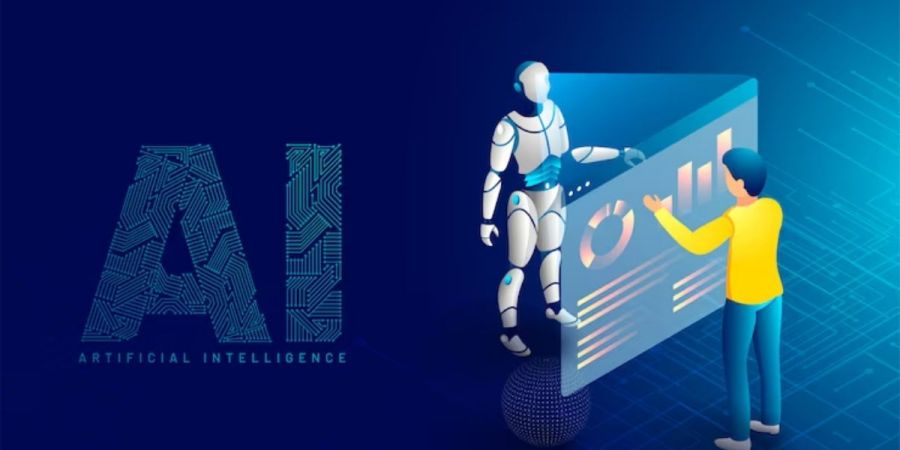

India is well on its way to achieving the fourth Sustainable Development Goal (SDG) of the United Nations, "Quality Education." Taking a few drives are advancing and making training open to everybody in the country. The public authority's push to utilize innovation has likewise assumed an essential part in taking special care of the instructive requirements of understudies. As a catalyst for online education, the pandemic has encouraged the use of more cutting-edge technology in education. Computerized reasoning specifically, which is now a hotly debated issue today, is expected to change the instructive scene in various ways.
One of the most significant obstacles we face in the educational sector is the teacher shortage. We need to find effective solutions in this crucial area if we are to comprehend the key opportunities associated with AI. In order to equip students with the skills they will need to compete in both the current and future job markets, the Indian Ministry of Education and NITI AYOG have already emphasized the significance of AI in the field of education and pushed for the creation and introduction of new AI courses in higher education.
Nonetheless, the human educator will be indispensable in essential training and primary schools. Decisive reasoning, critical thinking, cooperation, and correspondence are instances of delicate abilities and adaptable abilities that require association with others. Teachers, on the other hand, can use AI-based teaching assistants and helpers to work with younger and older students.
AI as a teacher's assistant Artificial intelligence (AI) has the potential to significantly enhance the teaching experience for both teachers and students by automating repetitive tasks and serving as a teacher's assistant. Via mechanizing the evaluating system, artificial intelligence can let loose instructors' significant time for other critical errands. It can be taught to grade essays, homework, and exams and provide immediate feedback to students. Additionally, AI can provide students with individualized learning experiences by analyzing their learning preferences and methods. This can help educators in deciding possible areas of understudy trouble so they can alter their guidance as needs be. Additionally, AI has the potential to assist instructors in locating trustworthy data and creating engaging course materials such as quizzes, presentations, and lesson plans. Accordingly, educators are probably going to zero in on additional understudies immediately, which works on their effectiveness.
Improved capacities of LMS
For the administration of all web-based exercises at a school, a learning the executives framework (LMS) offers a midway coordinated, easy to understand framework. Even though these tools can be used for a lot of different things, they are usually used to assign homework, talk to students and their parents, see how students are doing, make performance reports, and so on.
These LMS with computer based intelligence programming take into consideration the learning of a great many subjects. A simulated intelligence fueled keen computerized coach can help a student by giving them the answer for their concern as well as help with their concerns. Learning management systems that analyze student thought processes and enhance student learning can even be developed using artificial intelligence. Additionally, the LMS systems can assist parents in monitoring and evaluating their children through the use of an artificial intelligence engine. As a result, teachers and parents alike will gain insight into the child's development.
Fairer tests Because it gives teachers access to a variety of configurations and settings for creating test questions, artificial intelligence makes online tests more secure than offline tests. This makes the test administration less stressful and lowers the likelihood of cheating.
As a result, the system can be used to administer tests without having to go to a testing facility and risk it. Online exams for people who live far away can be administered safely with the help of AI-powered remote proctoring. The AI-proctored exam may incorporate both AI and human proctors for improved outcomes. Because a webcam is used to record video of the student taking the test, the AI is able to recognize any suspicious movement or activity. Hence, computer based intelligence arrangements can offer a practical and versatile security answer for ensure the uprightness of online test framework evaluations, which is helpful for instructive establishments.
Computer based intelligence is staying put
As per the reports, the computer based intelligence market in India will arrive at USD 7.8 billion by 2025. Technology is poised to completely reshape and reinvent the educational sector as a result of this. Teachers' expertise and the best AI technology will shape the future of education and the concept of learning as a whole. Thanks to AI, educators will be able to gain a deeper understanding of their students and abandon outmoded, conventional methods of instruction.
The use of AI technology in education in India has already begun, and it will continue to do so. In an overview of understudies by Examination Bits of knowledge, over 63.4% of members concurred that man-made intelligence is now changing the way in which Indian understudies learn and study. As a result, the educational sector will benefit from AI development in greater numbers as technology advances.
